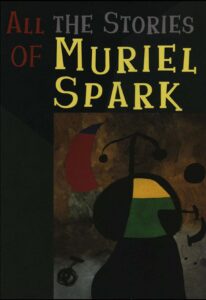 Four friends in a photograph, described in Muriel Spark’s short story “The Portobello Road,” reflect “the glory of the world, as if it would never pass.”
Four friends in a photograph, described in Muriel Spark’s short story “The Portobello Road,” reflect “the glory of the world, as if it would never pass.”
Ah, but the glory of the world does pass, a truth made utterly clear by Spark—British writer and Catholic convert—by the story’s end and largely through the device of a murdered woman’s seemingly content ghost. One of the four friends snuffs out another: George, who is all sensitivity (neurotic sensitivity) and no conscience, murders Needle, who dies yet stays alive. Needle (a woman) appears before George and amiably says hello to him; by and by he has a nervous breakdown.
When she was alive, Needle was considered lucky. Joltingly, in fact, her friend Kathleen says, “[Needle] was at Confession only the day before she died—wasn’t she lucky?” I submit that the story suggests that the best kind of “luck” is metaphysical or supernatural “luck.” This, however, is actually Grace, shown to transcend not only the glory of the world but also friendships the neurotically sensitive can ruin with murder.
“The Portobello Road” is cheeky, unusual and riveting, and so is “Bang-Bang You’re Dead.” The principal character, Sybil, is an easily bored intellectual compliant enough to spend a lot of time with her obtuse friend, Desiree, and Desiree’s husband. This is to say she keeps returning to an environment of falseness: the married couple are unspeakably dishonest, self-deluding. But Sybil is doing this not only because she is weak, perhaps, but also because she has guilt to expiate. Interestingly, she escapes a killer’s bullet near the story’s end (divine mercy?) whereas another character does not. Is Sybil one of the elect?
Coming from the Catholic Spark, even “Bang-Bang You’re Dead” is not an altogether secular fiction. Both stories are ingenious and can be found in the book, The Stories of Muriel Spark (1985).

Leave a Reply